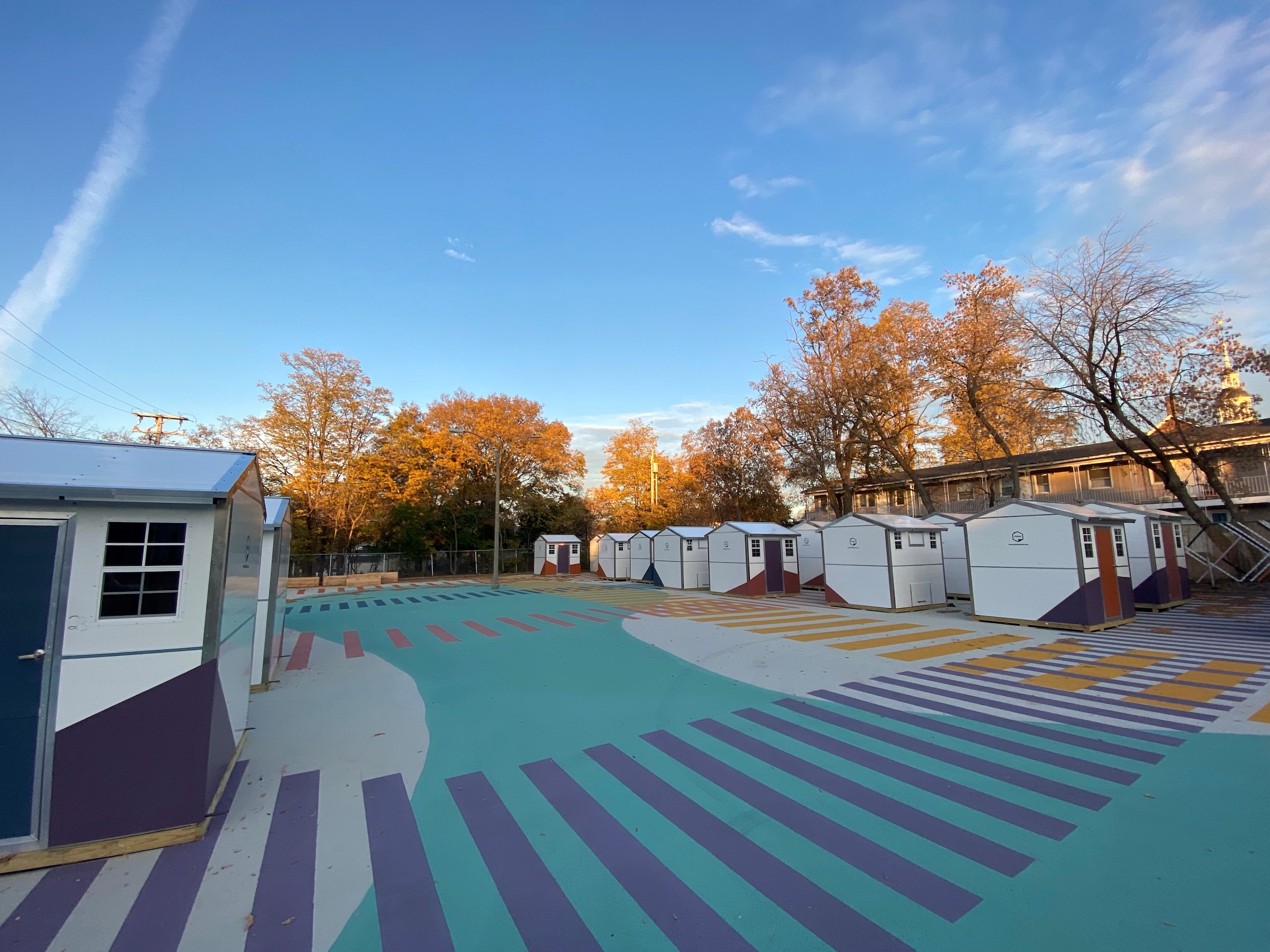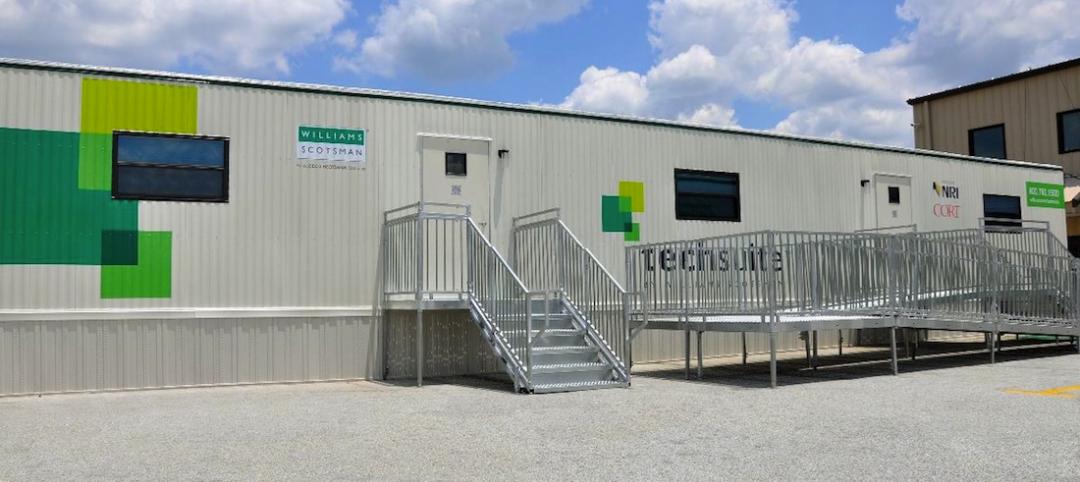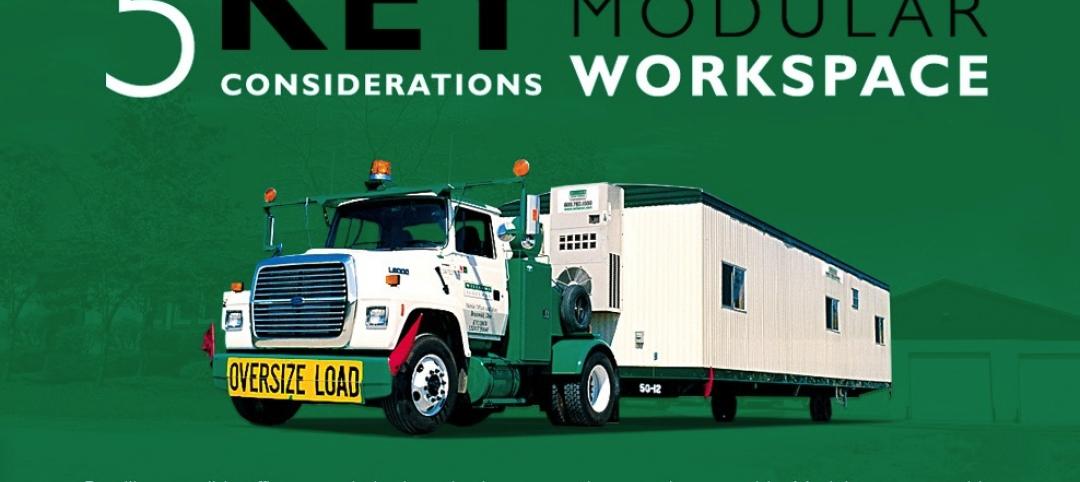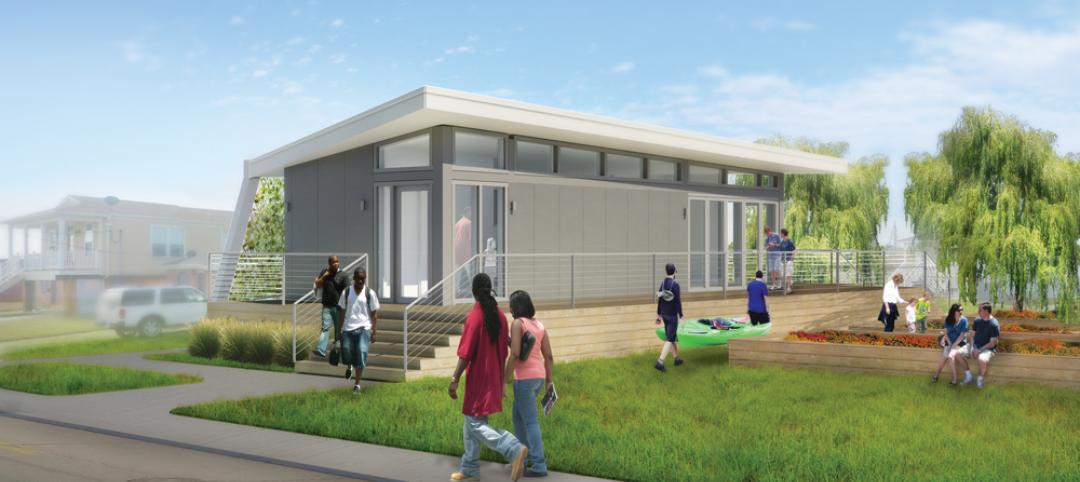More than a half-million Americans are homeless, according to estimates by the World Population Review, which cites the lack of affordable housing among the main causes.
Some advocates for the unhoused contend that this estimate vastly undercounts the actual number. Even in Vermont, with one of the lowest homeless rates in the nation, the problem is escalating. In Burlington, its largest city, the number of homeless went from 261 in 2020 to 700 in 2021, and has stayed elevated, according to the city’s estimates. One in 10 of Burlington’s homeless population is subsisting on the streets.
In December 2021, Burlington’s Mayor Miro Weinberger issued a five-year, 10-point action plan to address his city’s homeless crisis. Among those points was a call to build 30 shelter pods and related infrastructure. Two months later, the city council allocated $1.5 million in American Rescue Plan Act money to pay for the pods, plus additional funding for a community resource center.
In January 2023, Burlington’s Emergency Shelter Community, located on what once was a 0.55-acre municipal parking lot, was preparing to open. The community consists of 25 64-sf shelter pods produced and assembled by Pallet Inc. of Everett, Wash. Five more shelters are provided by a local manufacturer, Up End This, which developed its pods in coordination with the city.
Each “sleeping cabin,” which accommodates one or two people, includes a locking door, fold-up bunk, shelving, lighting, and heating. The shelters provided by Up End This include a desk and chair, and air conditioning. (While it’s not part of the Burlington project, Pallet also makes a 100-sf model that can accommodate up to four unhoused or displaced people.)
Burlington’s shelter village is supported by community spaces supplied by KBS Builders, a Maine-based modular builder. One building contains six full bathrooms, and the other offices, a kitchen, laundry, a gathering/eating area, and space for services. Samantha Dunn, the city’s Community Works Assistant Director, tells BD+C that the two community buildings are designed to meet high-performance energy standards, thanks in part to a donation of a minotaur unit that provides heating, cooling, and ventilation in the bathrooms; and the addition of solar panels provided by Harvestar with funding from the Vermont Low Energy Trust for Electricity. The buildings will be net-energy positive.
The city paid Pallet $11,800 per shelter, which included a cold-weather upgrade, shipping, and assembly services. Pallet’s claim to fame is that it can assemble a shelter in less than one hour.
Pallet Inc.'s modular pods for the homeless
Founded in 2016, Pallet is an offshoot of the green construction company Square Peg Fabrication, also in Everett, and was started by Amy and Brady King. As a Public Benefit Corporation, Pallet uses its profits to expand the impact of its twofold mission: to end homelessness, and to help the homeless find employment with Pallet, which hires people who are engaged in recovery—more than half of its employees have experienced homelessness, substance abuse, or the criminal justice system.
Since its founding, Pallet has delivered 2,800 shelter pods in 16 states and 60-plus cities. In the last week of December 2022, it was scheduled to start its 100th project, a 40-plus-pod village in the state of Washington that Pallet would assemble in two days, says Katya Hill, Pallet’s Director of Marketing and Communication.
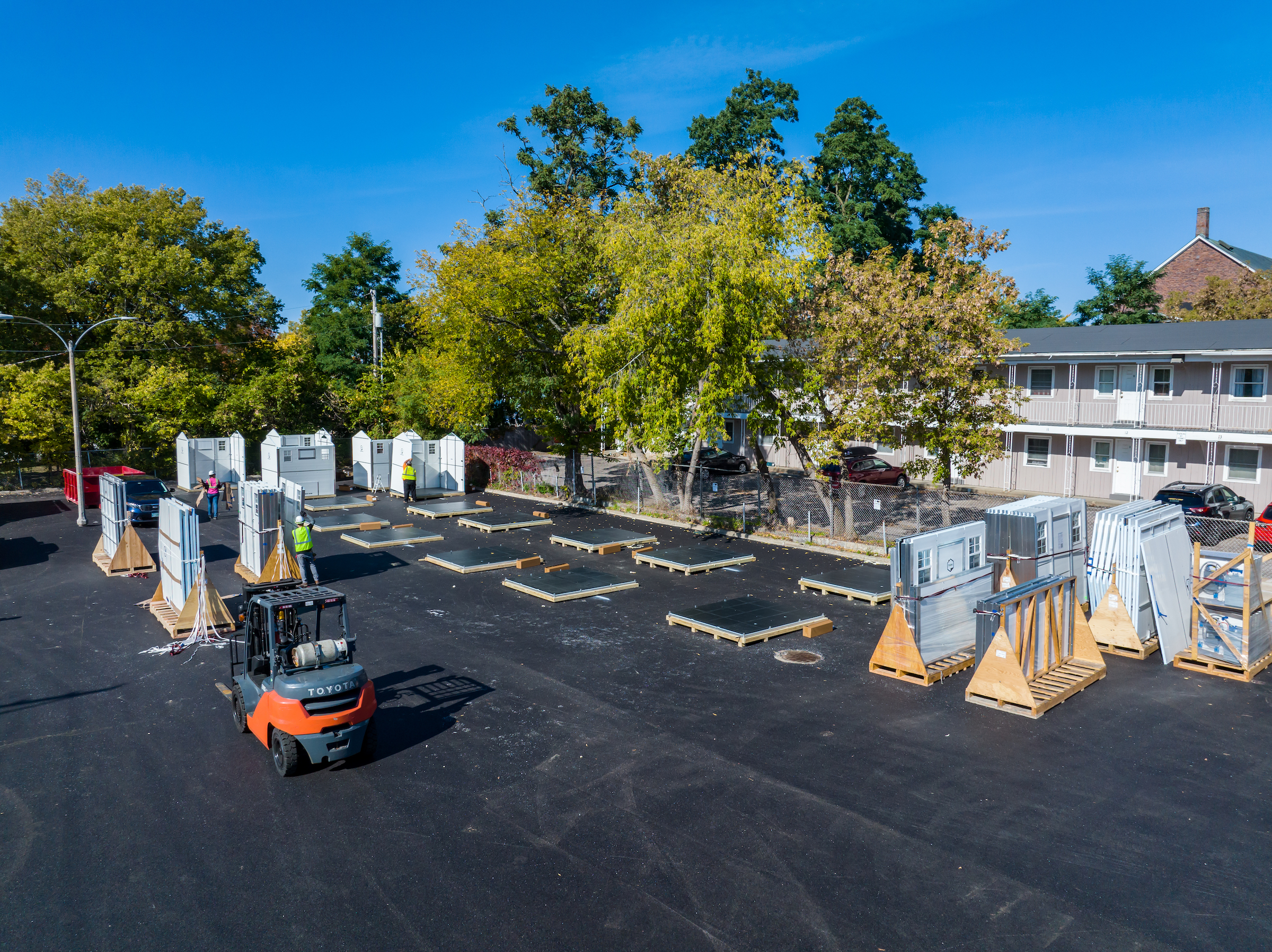
Hill tells BD+C that Pallet views homelessness as more of a social dilemma than a housing shortage problem. She also points out that Pallet is selling shelters, not homes. The shelters, she explains, “are part of a transition, a journey” that ideally leads to some semblance of economic, familial, and mental stability as steps toward permanent housing.
What Burlington is opening, says Dunn, is temporary emergency shelter, which will be operated by a team from Champlain Housing Trust. Per zoning requirements, guests can reside in a shelter for up to 180 days, with the option for a 60-day extension. As part of its action plan to combat homelessness, Burlington has executed memoranda of understanding with the Champlain Valley Office of Economic Opportunity’s CORA team, Turning Point Center of Chittenden County, Community Health Centers of Burlington, and Vermonters for Criminal Justice Reform for onsite services and support. The city continues to work with other nonprofits and faith-based groups to provide basic need items to shelter residents. And it has executed a contract with CVOEO for site-based navigation and service coordination.
Dunn says the city has designed and permitted this site to be in place for three years.
There are always displaced to be sheltered
This year, Pallet—which already enforces what HIll calls “dignity standards” that require its customers to purchase at least five shelters, and provide villages with lighting, security, and social services—will be promoting and pushing its “advisory services” to support the transition from shelters to permanent housing, including food, clothing, transportation, healthcare, and job placement.
Hill acknowledges that Pallet’s mission to end homelessness might sound “grandiose” to some. But she insists that Pallet’s founders would like nothing better than for their company to be put out of business because homelessness became a thing of the past.
That doesn’t mean, however, that the need for shelters would end. Hill points to the millions of people around the world who are displaced by natural disasters, war, and other unexpected events, and who need immediate and safe shelter, as well as medical, food and educational services, until their circumstances are mitigated. Bridging that gap with rapid-response solutions will continue to fuel Pallet’s purpose, says Hill.
Related Stories
Sponsored | | Nov 26, 2014
A conversation with Paul Raiford, Director of Energy Services
Q&A with Paul Raiford, Director of Energy Services with Williams Scotsman. SPONSORED CONTENT
| Nov 24, 2014
Must see: Plans released for underwater city that could house 5,000 people
The design centers around a floating, 500-meter-wide sphere linked to a resource center on the ocean floor via a 15-kilometer, helix-shaped path.
Sponsored | | Nov 19, 2014
Build green while you work green
Leading general contractors, including Skanska USA and Turner Construction, are implementing sustainable modular jobsite offices throughout the country. SPONSORED CONTENT
| Nov 18, 2014
New tool helps developers, contractors identify geographic risk for construction
The new interactive tool from Aon Risk Solutions provides real-time updates pertaining to the risk climate of municipalities across the U.S.
Sponsored | | Nov 12, 2014
Williams Scotsman plugs into the jobsite
Many of our customers conduct important business from their temporary modular jobsite office and most require access to technology to get their job done effectively and efficiently. SPONSORED CONTENT
| Oct 29, 2014
Better guidance for appraising green buildings is steadily emerging
The Appraisal Foundation is striving to improve appraisers’ understanding of green valuation.
Sponsored | | Oct 29, 2014
Historic Washington elementary school incorporates modular design
More and more architects and designers are leveraging modern modular building techniques for expansion projects planned on historical sites. SPONSORED CONTENT
Sponsored | | Oct 24, 2014
Infographic: 5 key considerations for securing modular workspace
Keep these five considerations in mind for your next project that may benefit from modular space. SPONSORED CONTENT
| Oct 21, 2014
Check out BD+C's GreenZone Environment Education Classroom debuting this week at Greenbuild
At the conclusion of the show, the modular classroom structure will be moved to a permanent location in New Orleans' Lower 9th Ward, where it will serve as a community center and K-12 classroom.
Sponsored | | Oct 16, 2014
Drilling deeper: The booming Bakken Shale region
The Bakken Shale region, which spans from central North Dakota to the northeastern corner of Montana, is rapidly growing as a result of the oil and gas boom. SPONSORED CONTENT


